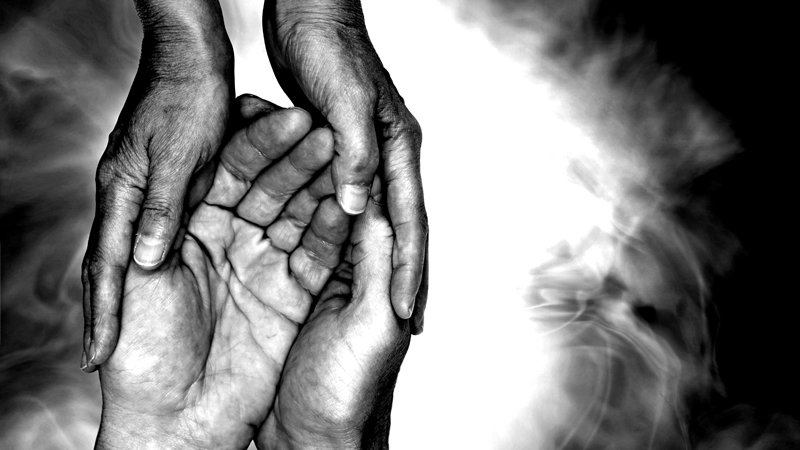

In Oman, palliative care is still in its infancy. But a big step will be taken with the launch of Oman Palliative Care website on October 12
It’s undoubtedly one of the basic needs of an individual to live a happy, contented, and peaceful life. It is also desirable for a person to say goodbye to the world without agony, with no life-supporting systems till the end but with his dear and near ones around.
Yes, we are talking about those who are terminally ill, critically disabled and also of people with dementia or Alzheimer’s disease. They need to be given maximum care at the comfort of their homes — that is palliative care.
“Palliative care is all about maximising the quality of life for patients with a serious or life threatening illness or one who is nearing the end of life. They can be children, adults and the elderly. If we want to improve their life or give relief to their sufferings then palliative care is required”, says Dr Zahid al Mandhari, Senior Consultant in Radiation Oncology at the Royal Hospital. According to WHO reports, more than 25.5 million people die every year with serious health suffering that requires palliative care globally. The number of people who experience serious health-related suffering is much higher, with an additional 35.5 million people requiring some degree of palliative care outside of end-of-life care.
Family carers and volunteers are a key component of palliative care services as they provide essential support. It is the societal responsibility to provide resources for care delivery to ensure patients have palliative care services per this year’s theme: ‘my care, my right’. The report further says that only less than 10 per cent of the overall need for palliative care is being met globally.
“Over 80 per cent of these cases are reported among people from low- and middle-income countries, whose access to immediate release oral morphine is limited”, says Maggie Jeans, one who actively works towards alleviating pain for the end-of-life patients.
“Palliative care improves the quality of life for patients whether adults or children and families facing challenges associated with life-threatening illnesses,” adds Maggie, who is also the Coordinator of British Business Forum in Oman.
In Oman, palliative care is still in its infancy, a lot of work has been put to build the foundations, through work done by Oman Cancer Association (OCA) where a number of nurses throughout the country have been trained in basic, advanced and leadership courses over the past years.
The Royal Hospital created a unit, the unit held quarterly training sessions where all the community nurses in the governorate of Muscat were trained, as well as nurses in various units in the hospital.
The unit is only a consultation service with no inpatient service. It’s closely linked with supportive services like social workers and community nursing. The new cancer centre currently being built will have the first inpatient unit.
Together for A cause
A day for the hospices and patients needing palliative care has been dedicated just to remind the world of the need of providing them a death in the comfort of their homes and October 12, 2019 will witness thousands of people from across 80 countries convene to make hospice and palliative care a public health priority.
They will be coming together to celebrate, support and speak up about the importance of hospice and palliative care.
Oman Palliative Care website will be launched on October 12 at the Grand Millennium Hotel Muscat, which will be attended by experts.
“Palliative care in Oman maybe in its infancy but the ground is fertile for a country wide palliative care system, if we all work together to make it happen”, Dr Mandhari said.
Oman Observer is now on the WhatsApp channel. Click here



